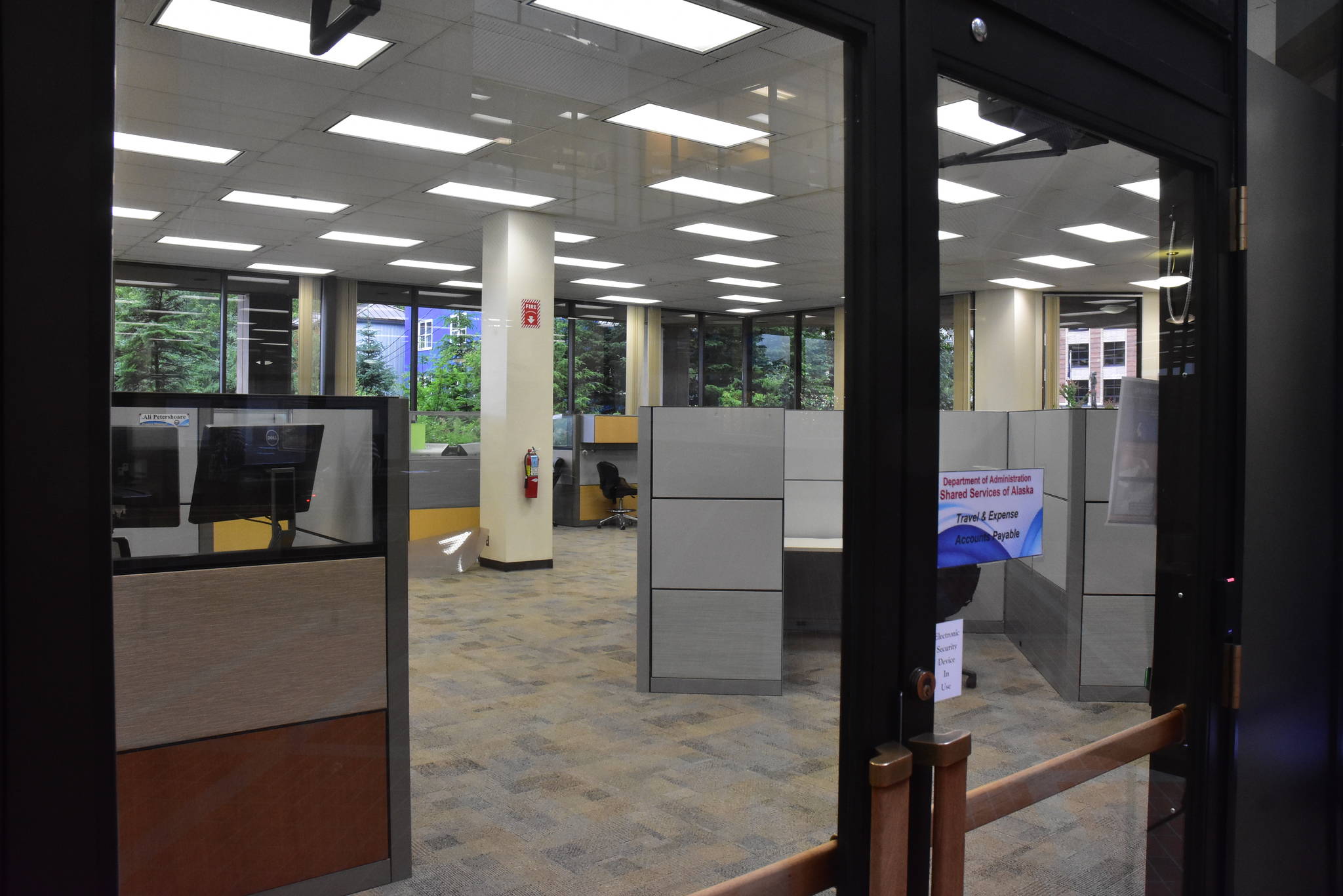Union leaders and lawmakers are calling for Alaska Occupational Safety and Health to issue COVID-19-specific guidelines and regulations for workplaces as more and more businesses reopen their doors to customers.
AKOSH has clear authority to issue regulations, said Rep. Zack Fields, D-Anchorage, the state just needs to take the initiative to do so. Fields is co-chair of the House State Affairs Committee, which had a joint meeting Wednesday with the House Health and Social Services Committee on workplace safety protocols during the coronavirus pandemic.
Fields is one of the lawmakers calling on Gov. Mike Dunleavy to issue strong health regulations, including a public face-covering mandate, and said after the meeting the state needed to send a stronger message about creating a safe work environment.
“It’s clear the state has an obligation to provide safe workplaces, (Department of Labor and Workforce Development) has an obligation to maintain safe workspaces and there needs to be enforcement,” Fields said. “Alaskans shouldn’t have to choose between, ‘you can have an unsafe job, or you can have unemployment.”
[COVID-19 cases continue to climb]
Dunleavy has repeatedly said he prefers to rely on individual responsibility rather than government intervention.
“The Governor has addressed that issue several times and his position has not changed,” Dunleavy spokesperson Jeff Turner said in an email. “Local governments are permitted, in consultation with the state, to implement their own mandates. Anchorage and Valdez have face mask mandates in place.”
Current guidance from the state is vague, Fields said, and other states have already implemented coronavirus policies that could be used as a template. Creating public confidence in health standards is essential to getting the economy restarted, he said, because people won’t shop if they’re uncomfortable going into public places.
“This virus is complicated.” Fields said. “It’s very unrealistic for every business owner to be an epidemiologist. The public has to have confidence we’re following the science. What’s really expensive is when people are afraid to go out and that’s why we need clear standards.”
The joint committee heard from union representatives, technical experts and Administration officials who gave testimony on the importance of strict health care protocols for the workplace. But union leaders say while guidance exists, compliance isn’t universal and there’s little enforcement.
Workers feel they are being forced to work under unsafe conditions, said Jake Metcalfe, executive director of the Association of Federal, State, County and Municipal Employees Local 52, which represents roughly half the state employees in Alaska.
“Ventilation is a big issue in the state office buildings,” Metcalfe said. “We have all this information on how it’s airborne, and state office buildings are in all kinds of different shape.”
However, state officials say drastic measures have already been taken to ensure the safety of public workers. Department of Administration Commissioner Kelly Tshibaka said during the meeting the state went from roughly 100 employees teleworking to more than 6,000 in just a few weeks. Additional janitorial staff were brought on, protective equipment was acquired and distributed and advisories on health protocols consistent with Centers for Disease Control and Prevention standards were available to all Alaska businesses.
[State workers share COVID-19 concerns]
“Guidance has been provided through the Department of Health and Social Services and through the governor’s health mandates throughout each planned phase of reopening,” said Cathy Muñoz, Deputy Commissioner of DOLWD, in an email. “Additionally, AKOSH Consultation and Training will provide at no cost to the employer a range of services including guidance specific to workplace safety amid the COV-19 pandemic. These services also include training videos, safety plan templates, guidance of the safe use of PPE, etc. Employers can request on-site evaluation visits or training to fit specific business needs.”
While that information is available, lack of mandates and enforcement means employers are not always following protocols as well as they should, union representatives say.
“Our members are terrified about getting the virus,” said Melvin Jones, president of UNITE HERE Local 878, which represents hotel workers. “We feel there’s a lack of sensitivity to the position workers are being put in, the lack of masks, gloves, social distancing.”
Most of the union’s members are in Anchorage and work in hotels where people are being quarantined, Jones said, but aren’t being told which rooms housed people who had tested positive. Workers who have been tested are being pressured to return to work before they get their results back, Jones said.
Hotels have been willing to work with unions to address certain issues, and are receptive to changes if they’re brought to management’s attention, according to Jones. But workers are still being forced to work in unsafe and unacceptable conditions, he said.
“There was a wedding at the Hilton (in Anchorage) that was not set up for social distancing,” Jones said. “Some of our people worked the wedding and all our people wore masks, but not all the guests wore masks.”
Jones and others advocating for worker protection say there needs to be a legal mechanism to backup guidelines and a way to enforce those guidelines.
“If it doesn’t have any teeth in it, you’re just going through the motions,” Jones said.
• Contact reporter Peter Segall at psegall@juneauempire.com. Follow him on Twitter at @SegallJnoEmpire.

